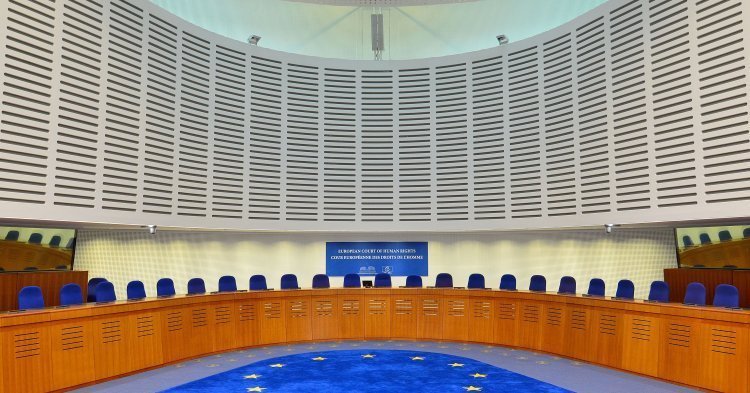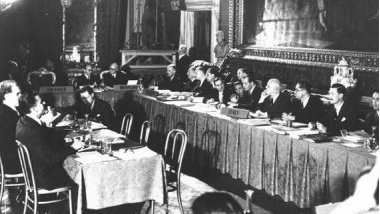The story of blasphemy against religious doctrines
During a public symposium entitled “Basic Information about Islam”, held in Vienna in January 2008, one speaker claimed that Mohammed “liked to do it with children” and told of a private debate which she had previously had with her sister during which she asked the question, “a 56-year-old man with a 6-year-old girl: what’s it about, then, if it’s not paedophilia?”. This reference to the marriage of the Islamic prophet and Aisha; a young 6-year-old girl, consummated when she was around 9 or 10 years old according to Islamic tradition; earned her an appearance before an Austrian criminal court for violation of Article 188 of the Penal Code, stating that the public slandering of religious doctrines is punishable by a 6-month prison sentence or by a fine of between €4 and €5,000. Charged guilty of this crime of blasphemy, she will get away with a €480 fine, which will be confirmed after the exhaustion of all other local remedies.
An appeal made before the European Judge of Human Rights
This woman then decided to appeal against her charge of blasphemy up until the EHCR for violation of her freedom of expression, which is guaranteed under Article 10 of the European Convention for Human Rights.
Her claim was surprisingly be rejected in a unanimous decision by the judges in Strasbourg. In fact, these judges, after having recalled that religious freedom should not prevent religion from being criticised, then asserted that the ability to criticise must be able to be limited by law, particularly in order to guarantee social and religious peace within a democratic society. The assessment of this need to protect social peace must, therefore, be decided by each national authority. Austria was able to sentence this woman whilst respecting the humanist values of the rights of man, as the criticism of the Prophet Mohammed’s sexual practices, according to the observations made by Austrian criminal judge, is akin to an attack on Islam, especially as the speaker did not specify the historical context of these practices which are now banned.
This €480 fine was determined to be proportionate to her actions, after having been weighed up against her freedom of expression.
A decision against the values of European society
The day following this judgement which allows national laws to penalise blasphemy, Irish citizens in a referendum voted largely in favour for the abolition of the crime of blasphemy from the constitution of the country that is known for its strong Catholic faith.
Conversely, in other Member States, blasphemy still remains penalised, notably in Germany. In France, the crime of the blasphemy was abolished from the local laws of Alsace and Moselle in 2016 by the Equality and Citizenship Law, upon the initiative of the Senate.
In a Europe where the law becomes increasingly secularised, this residue of the crime of blasphemy raises questions. Indeed, if French law had a provision identical to that in Austrian law, we could legitimately ask ourselves the question: how many times would the satirical newspaper Charlie Hebdo have been convicted? One thing is certain; these convictions would have received the approval of the judges of the ECHR, and it wouldn’t have been weapons but the law that would have tried to silence this newspaper which has become a symbol of the freedom of expression.
Today, hope remains in the Grand Chamber of the European Court of Human Rights, which can be petitioned by a party to give a final judgement. It appears essential that it protects the freedom of expression of bigoted claims, as the United States Supreme Court has already done in its judgement of Joseph Burstyn, Inc. v. Wilson since 1952.
What would Voltaire think of this decision being based upon human rights, of which he is one of the founding fathers? The fierce defender of knight Jean-Francois de La Barre, the last Frenchman sentenced to death for blasphemy in France in 1766, who fought against the influence of religion within the Ancien Régime’s justicial system, would have probably turned in his grave.
If this decision were to be confirmed, it would highlight a significant regression in the breadth of freedom of expression. This ruling could prove to be problematic, notably regarding scholars’ freedom of research in religious sciences in countries where the crime of blasphemy still subsists. Citizens of these countries should drastically mobilise themselves, not only for the repeal of these provisions such as in Ireland but also to state that “blasphemy is a part of human rights, not good habits”, as articulated very well by André Comte-Sponville in his Dictionnaire philosophique.
What will the European Court of Human Rights think of the conviction of Christ to crucifixion for blasphemy against Judaism as well? Will it still look for a proportionality between the sanction and the need to ensure “social and religious peace”?
Definition of ’blasphemy’: “The action or offence of speaking sacrilegiously about God or sacred things; profane talk” (Oxford)





Follow the comments: |
|
